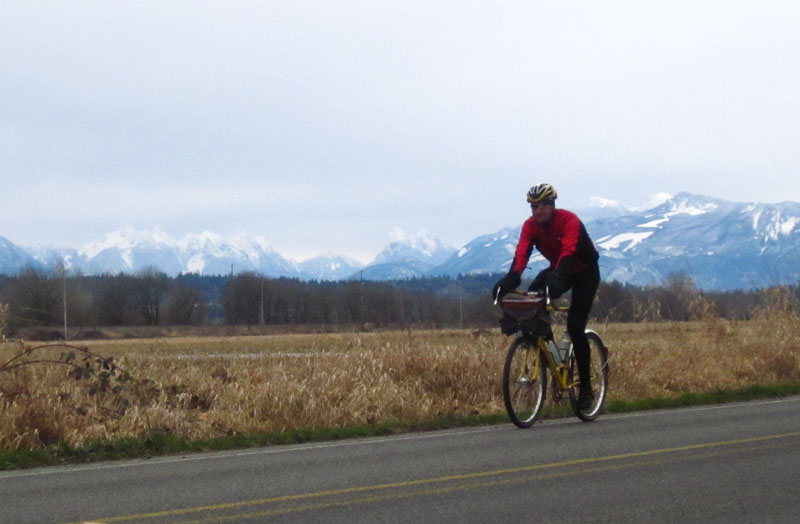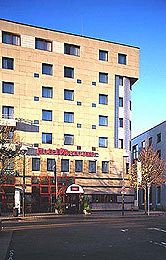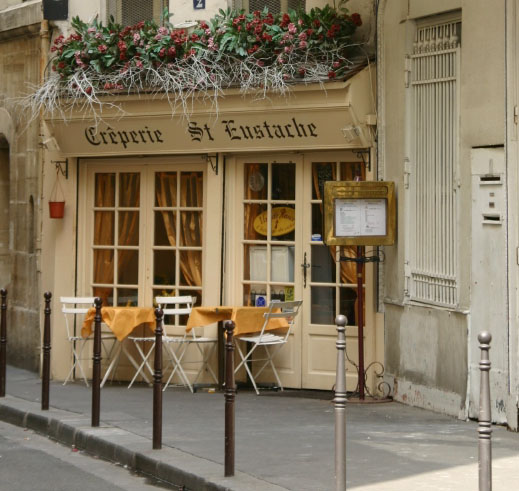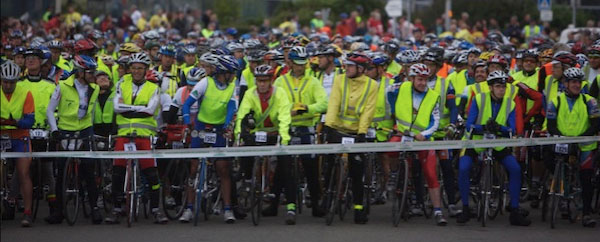PBP Preparation: Planning Your Trip To France

If you are planning to ride Paris-Brest-Paris (PBP) this August, you probably have started training already. We are adding some hills to our “base miles” now as the brevet season approaches.
Now also is the time to plan the trip. Booking airfares early usually results in less expensive tickets, and hotels often fill up early as well. Here are a few thoughts from my perspective after having completed three PBP rides, as well as talking to many other participants:
Packaged Tours?
Traveling in France is easier than you may think. Paris is accustomed to tourists, and most hotels, restaurants, etc., have somebody who speaks English. You will have little trouble getting around on your own. (Learning a little French still is a good idea.) There is little need to book a packaged tour.
On the plus side, a packaged tour will offer you peace of mind and help with getting your bike from the airport to your hotel. Negotiating the Charles de Gaulle airport is always challenging, and it’s not made easier by having to carry your bike up and down flights of stairs.
Staying in Paris or Saint-Quentin?
For me, the main reason to ride in Paris-Brest-Paris is to experience riding in France and being part of the history of Paris-Brest-Paris. If my goal was just to ride a 1200 km brevet, I could do this closer to home…
Paris-Brest-Paris now starts in Saint-Quentin-en-Yvelines in the outer suburbs of Paris. The good part is that tired riders no longer have to navigate Paris traffic at the end of this 750-mile ride. The bad part is that Saint-Quentin is a “ville nouvelle,” a modern suburb (see photo below) lacking the charm, museums, restaurants, cafés and parks of Paris.

Contrasting this, Paris is a city with more than 1000 years of history, and worth a visit by itself (see photo below). It is a good idea to arrive a few days before the start of PBP to get over your jet lag and acclimatise to France. I think it is more fun to hang out in Paris than in Saint-Quentin.

Photo ©Gary Johnston
From Paris, it is relatively easy to get to Saint-Quentin by train. The trains leave from the Gare St. Lazaire and Gare Montparnasse (near the Latin Quarter), which you can take into account when booking your hotel. You can find public transit connections in Paris at this web site.
The suburban trains in Paris take bikes – you just roll them on. (It’s more difficult, but possible, to take a bike on the Metro and RER trains.) Since your bike must be checked the day before the start, you get to practice the itinerary without any stress. (You can show up to the bike control at any time you want.) After that practice run, there is little risk of getting lost when you are going to the start of the actual event.
Riding your bike in Paris is a fun and easy way to get around, but finding your way through Paris’ suburbs can be tricky. Perhaps I’ll map a bike route from Paris to the start of PBP when the time approaches and put it in the blog.
On the other hand, if you enjoy socializing with other American, British and Australian riders, then Saint-Quentin is the place to be. You’ll be near the start, and from the finish, it won’t be far to your hotel.
No matter where you stay, you don’t have to pay for the hotel while you ride the event. Leaving a suitcase or two for a couple of days while you are on the road usually is no problem if you return to the hotel for a couple of nights after the ride.
Start Group?
If you are at all uncertain about making the time limits, choose the 90 hour start group. That way, you have ample time to complete the ride. For faster riders, there are two additional start groups: The 80-hour group starts ahead of the crowds, ensuring open roads and empty controls. Clean bathrooms, too. These two groups start in the late afternoon. The 84-hour group starts in the morning. Some riders do not like riding at night, and prefer this group. I have tried each start time. Here is what I found:

Photo ©Gregg Bleakney
84-Hour Start
For my first PBP in 1999, I chose the morning start. I slept poorly that night, afraid I’d oversleep. With the excitement of the event, I was not tired until 24 hours into the ride. So I went to sleep at 5 in the morning, and my daily rhythm was upset. Furthermore, as the morning group started last, I found many of the controls to be crowded as we ran into the main wave of riders.
80- and 90-Hour Starts
Since then, I have started in the evening. The day of the start, I get up late, then take a lunch-time nap, and still have plenty of time to arrive the start with little stress. (This year, PBP will start a few hours earlier, so I may have to go without the nap.) Most of all, I really enjoyed riding through the night to leave Paris on empty roads with little car traffic. When the day broke, I was in Britanny, right in the heart of this remarkable event.
Hotels along the Course?
PBP is a well-organized ride. All you need to do is show up at the start with your bike and about 200 Euros in your pocket. (Don’t plan to use credit cards or ATM machines during the event.) The Audax-Club Parisien keeps the entry fee low, and you pay as you go for food and other services.
Some riders book hotels along the course. While it may sound nice to have a clean bed and shower half-way through the ride, the potential drawbacks may outweigh the benefits. Not only does a pre-booked hotel room detract from the adventure of PBP, it also locks you into a schedule that you may not be able to maintain. I have heard of many riders who arrived at their pre-booked hotel room, but were not yet tired. Others got there so late that there was no time to sleep. Yet others spent an hour or two just finding their hotel, losing valuable time.
PBP controls usually are located in high schools. The gym has sleeping arrangements. For a few Euros, you get a cot and a blanket. (Bring earplugs, because some randonneurs snore.) A volunteer who will wake you up at a pre-determined time. During a randonneur ride, you stop only when you truly are tired, and that is all you need. Food is next door in the cafeteria, and you are back on the road without much delay. Key to this is arriving ahead of the biggest crowds. I will discuss strategies for staying ahead of the crowds in a future part of this series.
Which PBP start times and travel arrangements do you prefer?


